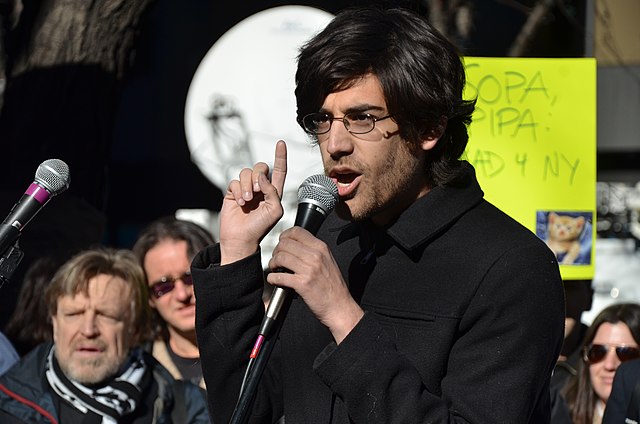This January 13 marks the tenth anniversary of Aaron Swartz’s physical departure. A day that has been instituted in his honor as “Cyberactivism Day”.
Wikipedia – another magnificent undertaking of free access to collective knowledge – informs us that Aaron, nicknamed “the Prince of the Internet”, was a prolific American programmer and hacktivist (among other virtues), who helped develop the RSS format for web feeds, the technical architecture of Creative Commons, the web.py framework and Markdown, a lightweight markup language format.
In a note by Jacobo Nájera published by the SurSiendo collective, it defined him as a “promoter, disseminator and developer of the so-called Semantic Web, the one defined by Tim-Berners Lee as an “extension of the current web in which information is given well-defined meaning, which allows computers and people to work cooperatively.”
“Science popularizer, other craftsman; Aaron is a key person to approach and observe generations in the process of manifestation through ideas and science as a guiding axis. Not only for his impeccable work as a scientist, but also for using scientific work as a socialization process in itself,” adds Nájera, also a researcher and developer of free software.
Beyond his practical contributions in technology, Swartz’s great contribution was to raise civic awareness of the need to open access to knowledge for all humanity without any restriction and to enable its free flow in digital spaces. He was one of the main drivers of the campaign that weakened the Stop Online Piracy Act (SOPA) initiative.
An interesting document that explains his ideology and the basis of his actions is the Manifesto for the Guerrilla for Open Access.
It reads: “You, with access to these resources – students, librarians, scientists – have been granted a privilege. You can feed at this banquet of knowledge while the rest of the world is left out. But it is not necessary – in fact, morally, it is not possible – for you to keep this privilege to yourselves. You have a duty to share it with the world.”
His consistency led him to connect to the MIT network using a guest user account provided to him by the institute, and to systematically share scholarly journal articles from JSTOR, for which he was arrested on January 6, 2011.
The charges that the state prosecution raised in an exaggerated manner against him entailed a maximum prison sentence of 50 years and $1 million in fines. A prosecution that was undoubtedly intended to take revenge on free activism and establish an exemplary punishment against anyone who dared to transgress the sacrosanct rules of intellectual property.
Reluctant to accept a lesser penalty that he did not consider at all fair for his actions, he put an end to his physical existence at the age of twenty-six on January 13, 2011.
In a memorial tweet, Tim Berners-Lee, considered the father of the World Wide Web, said, “Aaron has died. Wanderers of the world, we have lost a wise old man. Hackers by right, we have lost one. Parents all, we have lost a son. Let us mourn.”
Like the great humanists who with their courage opened new paths, barred by prejudices and anachronistic norms, his actions endure in the memory, in the present and future of all those who work in and for Good Knowledge, for the common good of Humanity.










